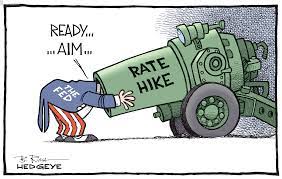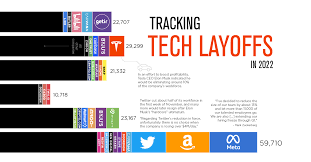I have been considering writing an article related to mortgages for years now, as it seems most people do not really understand mortgages above and beyond that it is a loan to fund a real estate purchase. However, people do not seem to understand how they work, what external factors impact interest rates, types of pre-approvals or the history or future of interest rates.
My BS and MBA degrees are in Finance; in a previous life, I was a high level strategist and dealmaker for top Fortune 500 financial services companies. Thus, I find myself explaining some of the nuances around mortgages and more recently (given the rapid rise) interest rate dynamics to my clients, but even many of my realtor/agent colleagues who are not well versed in finance.
The following are five major misconceptions regards mortgages:

- The Feds meet approximately every 6 weeks to discuss the Fed Funds (“FF”) rate, and they just announced another rate hike this week. https://www.cnbc.com/2023/07/26/fed-meeting-july-2023-.html. The FF rate is the rate that one financial institution lends funds to another on an “overnight” basis. Mortgage interest rates are tied to the 10 year treasury yields and only marginally correlated with movements in the FF rate. One is short-term and the other is medium/long term in duration. There is the concept of the yield curve (rate on Y and duration on X) which can be a rising, flat or upside down yield curve depending on the economy/market/forecast and that is a key element in how much movements in FF rate impacts mortgage rates.
- Mortgage rates at over 7% are more than double what they were just 2 years ago. Buyers are affected by the hike in rates due to the loan amount they qualify for now, and even more significantly, the psychological impact of wanting to wait until rates drop before making a purchase given “how high rates are now”. The chart below depicts the historical 30 year fixed average mortgage rates as compiled by government entity Freddie Mac and Bankrate.com. Must be noted that prior to 2010 (just after the subprime mortgage implosion/meltdown), average interest rates were always above 5% and for the 30 year period from 1972 to 2001, and in 29 of the 30 years, average mortgage rates were above 7%. Interestingly, during the peak of the pandemic when I was cleaning out boxes in my garage, I found loan documents for my 1st home mortgage that had a 7.5% 30 year fixed interest rate which I refinanced 2 years later for around 6%. Yes, rates are much higher than they were 2 years ago, but by historical standards, the current rates are not considered outrageously high either. See my article I wrote 10 years ago for further perspective. https://taosiliconvalley.com/2013/11/08/mortgage-rates-have-risen-since-its-all-time-low-should-this-impact-your-timing-to-buy/
| Year | 30-yr fixed | Year | 30-yr fixed | |
| 2022 | 5.53% | 1996 | 7.76% | |
| 2021 | 3.15% | 1995 | 7.86% | |
| 2020 | 3.38% | 1994 | 8.28% | |
| 2019 | 4.13% | 1993 | 7.17% | |
| 2018 | 4.70% | 1992 | 8.27% | |
| 2017 | 4.14% | 1991 | 9.09% | |
| 2016 | 3.79% | 1990 | 9.97% | |
| 2015 | 3.99% | 1989 | 10.25% | |
| 2014 | 4.31% | 1988 | 10.38% | |
| 2013 | 4.16% | 1987 | 10.40% | |
| 2012 | 3.88% | 1986 | 10.39% | |
| 2011 | 4.65% | 1985 | 12.43% | |
| 2010 | 4.86% | 1984 | 13.88% | |
| 2009 | 5.38% | 1983 | 13.24% | |
| 2008 | 6.23% | 1982 | 16.04% | |
| 2007 | 6.40% | 1981 | 16.64% | |
| 2006 | 6.47% | 1980 | 13.74% | |
| 2005 | 5.93% | 1979 | 11.20% | |
| 2004 | 5.88% | 1978 | 9.64% | |
| 2003 | 5.89% | 1977 | 8.85% | |
| 2002 | 6.57% | 1976 | 8.87% | |
| 2001 | 7.01% | 1975 | 9.05% | |
| 2000 | 8.08% | 1974 | 9.19% | |
| 1999 | 7.46% | 1973 | 8.04% | |
| 1998 | 6.91% | 1972 | 7.38% | |
| 1997 | 7.57% |

- Mathematically the rise in mortgage rates has a direct impact on real estate prices. When rates were very low, consumers qualified for higher loan amounts. Rates precipitously increased starting Spring 2022. Real estate values in 2nd half 2022 dropped around 10-15% in the SF Peninsula area. While mortgage rates definitely factored into the price drop, it could be considered that other macro/micro factors may have had an even larger negative impact than rates. There were large layoffs with top technology companies, plus some major companies moved out of state; then, the stock market declined rapidly (Nasdaq in particular) affecting a meaningful segment of potential buyers. See my most read blog post that ranks very highly on the Google organic search algorithm discussing the impact on supply and demand in real estate. https://taosiliconvalley.com/2013/08/26/microeconomics-101-for-real-estate-2/
- When I am the listing agent representing a Seller, I always do my due diligence on the “strength” of a “preapproval” letter for someone who submitted an offer on my listing. Many real estate agents think having a letter from a mortgage lender/broker that says “preapproval” is strong and a done deal. Most of these letters are NOT “underwriting preapproved”, but really a “prequalification” letter with just a different title. To be considered a “preapproval”, the file would need to be submitted to a lender underwriting department with a full application file. Most of the time, a letter is generated by the mortgage consultant/officer who reviews the documents and possibly runs a credit check before calculating a loan amount and generating a (prequalification) letter. If the mortgage officer is highly experienced, detailed and competent, this is still strong. This is why I want to know exactly how strong a preapproval/prequalification letter is when I discuss a deal with my seller or buyer client so they understand the risks.
- In my open houses, I have heard potential buyers say that they prefer to wait until interest rates decrease again before seriously contemplating purchasing a property so they can qualify for a higher loan amount and be able to purchase a bigger property. Unfortunately, in the SF Peninsula area it may not work like that. If rates go down, then all the other buyers can qualify for higher amounts too which may drive up prices. Additionally, there will be others who are thinking the same thing so demand/competition overall may be less with higher rates. The risk of waiting is, no one knows how long it will be before rates drop 1-2% as it may be years. Lastly, the other strategy would be to purchase with the higher interest rate if the right property comes up and financially a buyer can afford it, and assuming they may be able to refinance if/when the rates go back down in the future.
As always, if anyone wants to discuss real estate, economy, stock market, or just the Warriors or Niners, feel free to call/email/text. Please feel free to subscribe to this blog or <Like> my FB Real Estate Page at https://www.facebook.com/PeterTaoProperties.